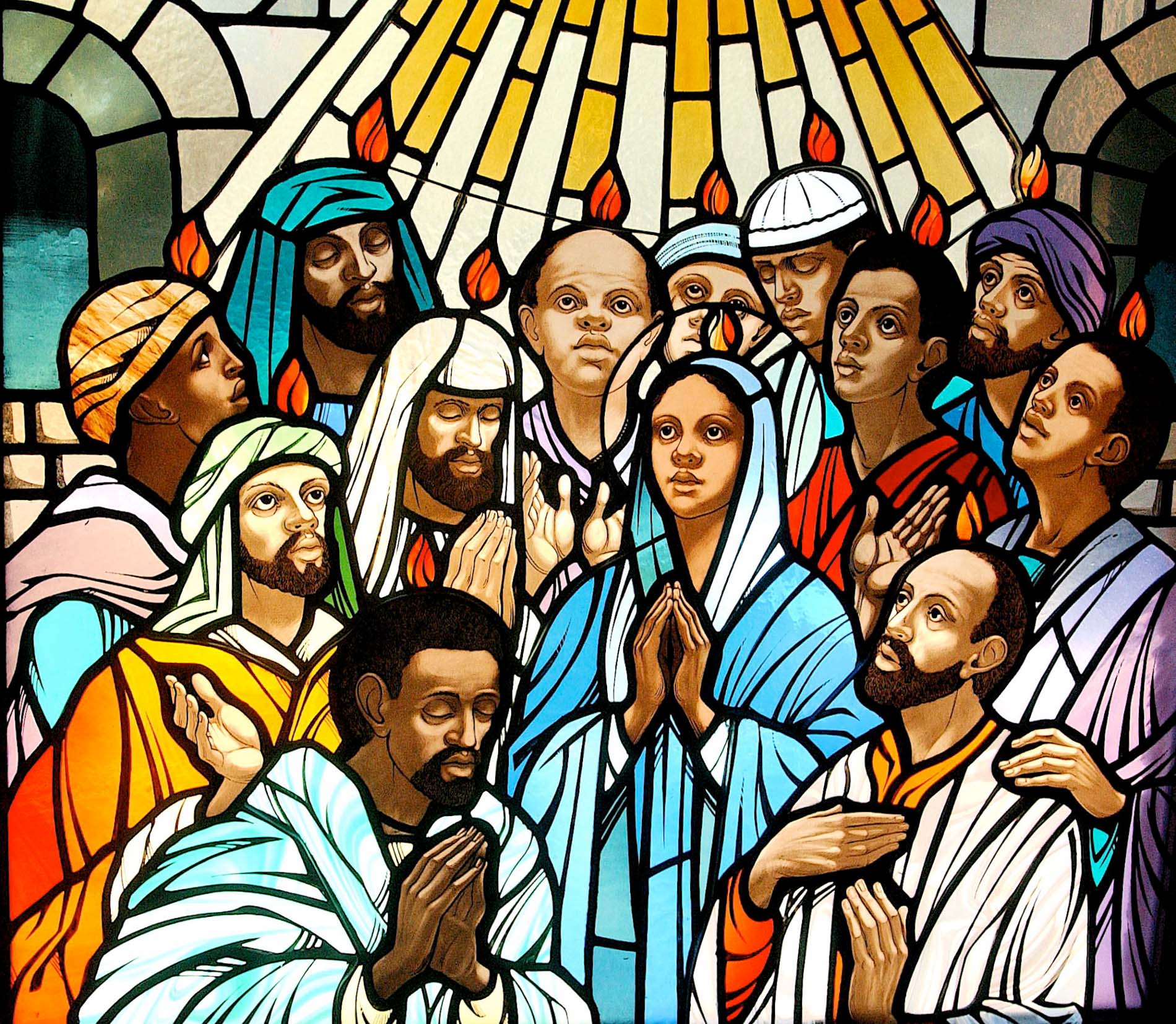Regina Caeli – Queen of Heaven, Rejoice!
The Regina Caeli, Latin for “Queen of Heaven,” is a hymn and prayer ...

One of the greatest Fathers and Doctors of the early Church here explains how the descent of the Holy Spirit transforms us, making us sharers in the Divine Nature of the Word. The Holy Ghost changes us and empowers us to live a new kind of life.
After Christ had completed his mission on earth, it still remained necessary for us to become sharers in the divine nature of the Word. We had to give up our own life and be so transformed that we would begin to live an entirely new kind of life that would be pleasing to God. This was something we could do only by sharing in the Holy Spirit.
It was most fitting that the sending of the Spirit and his descent upon us should take place after the departure of Christ our Savior. As long as Christ was with them in the flesh, it must have seemed to believers that they possessed every blessing in him; but when the time came for him to ascend to his heavenly Father, it was necessary for him to be united through his Spirit to those who worshiped him, and to dwell in our hearts through faith. Only by his own presence within us in this way could he give us confidence to cry out, Abba, Father, make it easy for us to grow in holiness and, through our possession of the all-powerful Spirit, fortify us invincibly against the wiles of the devil and the assaults of men.
It can easily be shown from examples both in the Old Testament and the New that the Spirit changes those in whom he comes to dwell; he so transforms them that they begin to live a completely new kind of life. Saul was told by the prophet Samuel: The Spirit of the Lord will take possession of you, and you shall be changed into another man. Saint Paul writes: As we behold the glory of the Lord with unveiled faces, that glory, which comes from the Lord who is the Spirit, transforms us all into his own likeness, from one degree of glory to another.
Does this not show that the Spirit changes those in whom he comes to dwell and alters the whole pattern of their lives? With the Spirit within them it is quite natural for people who had been absorbed by the things of this world to become entirely other-worldly in outlook, and for cowards to become men of great courage.
There can be no doubt that this is what happened to the disciples. The strength they received from the Spirit enabled them to hold firmly to the love of Christ, facing the violence of their persecutors unafraid. Very true, then, was our Savior’s saying that it was to their advantage for him to return to heaven: his return was the time appointed for the descent of the Holy Spirit.
This excerpt from from a commentary on the gospel of John (Lib. 10: PG 74, 434) on the transforming power of the Holy Ghost by Saint Cyril of Alexandria, bishop, It appears in the Roman Liturgy’s Office of Readings for Thursday of the 7th week of Easter, just three days before the Feast of Pentecost. The accompanying biblical reading is from I John 5:13-21.
For more on the new life in the Spirit, see the PENTECOST SECTION and the HOLY SPIRIT SECTION of the Crossroads Initiative Library.
Mike Lewey
Posted at 03:30h, 25 JunePlease can you tell me where this stained glass window is located (which church, town/city and country)?
Thank you and God Bless.
Dr. Marcellino D'Ambrosio
Posted at 22:27h, 08 JulyMike, unfortunately the volunteer who sourced that image failed to note this information and is no longer with us. We will search and post the source at the bottom of the article if we are able to find the information.